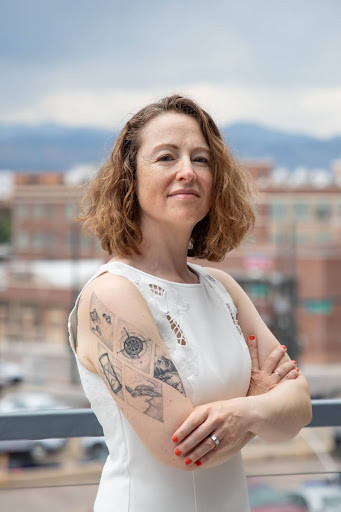MOA Architecture: The Firm Building Legacy Through Leadership, Diversity And Design

Architecture has long been seen as a discipline of precision, creativity, and legacy, but historically, not one that would be related to inclusivity. For decades, women have been underrepresented in the profession, especially in positions of leadership. While enrollment in architecture programs began to shift in the early 2000s, with more women entering the field, the path to the top has remained steep and narrow. Today, a new generation of female leaders is emerging to challenge that status quo, reimagining what it means to build, lead, and grow. And at the forefront of that transformation is Katie Vander Putten, the first female president of Denver-based MOA Architecture.
Vander Putten never planned to lead a firm. "I wasn't aiming for leadership," she says. "I just wanted to do good work, help clients, and go home feeling proud of what I did." But at MOA, leadership isn't reserved for those who chase it. It's nurtured in those who care deeply and deliver consistently. And that's exactly what Vander Putten did.
Today, she leads a firm that has always valued legacy. Founded in 1981 by two visionaries, MOA began as a minority-owned practice with a mission to make a difference in people's lives through the power of great design. Through a personal relationship that the MOA firm built, they were able to enter the K-12 sector, which is now a backbone of the firm's portfolio, and one of those original clients is still with them today. It is a true testament to the long-term, relationship-based approach that defines the firm.
"We've always said we're the Goldilocks of architecture firms," Vander Putten explains. "We're big enough to handle complex projects, while small enough to provide a personal commitment to each of our clients. Every client gets principal-level involvement. Every project matters."
Yet it's not just MOA's projects that benefit from that hands-on philosophy; it's the people, too.
Through the firm's inclusive leadership style, more than half of MOA employees are women, a figure far above the industry average. This didn't happen through quotas. It happened because of a deep cultural commitment to diversifying leadership and building teams around individual strengths. That shift began years ago when executive coaching revealed that MOA's leadership team, while aligned, was too homogenous in thought and background. The founders took that insight seriously, rethinking how they approached leadership and investing in professional development that valued influence, adaptability, and different perspectives.
It was in this culture of intentional leadership that Vander Putten was hired to build MOA's healthcare sector. "What I found here was the support I didn't even know I needed," she says. "They gave me space to try, to fail, to experiment. That changed everything."
Together with Brandon Daigle, Principal and Director of Business Development, Vander Putten represents the firm's third generation of leadership. And they're not stopping there. "We're already planning for the fourth and fifth generations of owners. But this isn't just about succession," Daigle says. "It's about investing in people so the firm outlives all of us."
Katie's leadership is all about paying that trust forward.
Each Friday, Vander Putten leads 'High Five Fridays,' personally recognizing five team members, consultants, or clients for their contributions, big or small. She's also launching a business development accelerator, giving emerging staff early training in client relationships, sales, and leadership.
She also credits the Kick Ass Women's Leadership Group, a peer network of women leaders, with helping her develop her voice and stay grounded. "Leadership can be lonely," she says. "Especially, for women, there's this unspoken expectation that women should support quietly from behind. I'm still learning that it's okay to speak out about our achievements, and it's okay to be in the spotlight advocating our successes."
And yet, her leadership style is grounded in humility, support, and vision, not hierarchy. "The best thing I can do as a leader is train my replacement to be better than me," she says. "That's how we grow."
MOA's commitment to people-first leadership has fueled not just culture but performance. Most of the firm's work comes from repeat business. It quietly exceeded stretch goals that many initially thought were unrealistic. "Setting ambitious goals inspires everyone to think bigger," she says. "And when you support people with the right resources and encouragement, they surprise you."
But ask Vander Putten what she's most proud of, and it's not numbers or awards.
It's the stories of growth, support, and resilience. The project architect stepped into leadership. The employee who found their voice. The client who came back decades later because of the relationship. "What I love most about architecture is we get to be part of someone's story," she says. "But I don't think we tell our own stories enough. I want to change that. I want to celebrate the people, the process, and the progress."
As MOA celebrates 44 years in business, Vander Putten isn't just looking back; she's laying the groundwork for the next 44. And doing it in a way that ensures the future is more inclusive, more dynamic, and more human than ever.
© Copyright IBTimes 2025. All rights reserved.



















